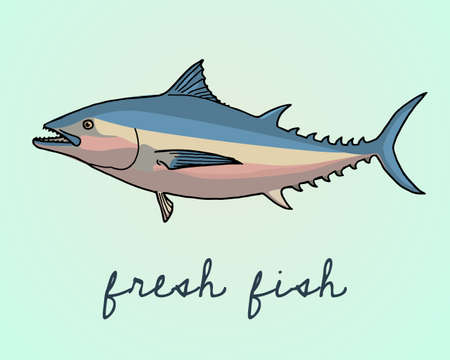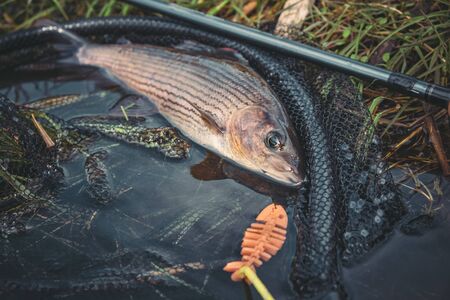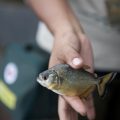Introduction to Sustainable Scottish Fishing Holidays
Scotland’s legendary lochs, winding rivers, and rugged coastlines have long drawn anglers from across the UK and beyond, eager to experience some of Europe’s finest wild fishing. Yet as more visitors flock north to cast a line in these pristine waters, the importance of sustainable and eco-friendly fishing holidays has never been clearer. A truly memorable Scottish fishing break is not just about the thrill of the catch; it’s about respecting the delicate balance that makes this natural playground so special in the first place. Sustainable practices—from catch-and-release policies to supporting local conservation initiatives—help safeguard Scotland’s unique aquatic ecosystems and ensure that generations to come can enjoy the same peace and abundance. At the same time, eco-conscious tourism brings meaningful benefits to rural communities, supporting local jobs and traditions while nurturing a deeper connection with the landscape. As you plan your next angling escape to Scotland, seeking out operators and experiences committed to green values is both a rewarding and responsible choice.
Eco-Friendly Accommodation and Travel Options
When planning a sustainable Scottish fishing holiday, where you stay and how you travel are as important as the lochs and rivers you choose to cast your line. Scotland’s wild waters invite you to slow down and savour the landscape, but it’s crucial that your journey treads lightly on these ancient grounds. Opting for eco-friendly lodgings and mindful transport options not only reduces your carbon footprint but also deepens your connection with Scotland’s natural rhythms.
Choosing Sustainable Lodgings
From off-grid bothies perched by remote streams to thoughtfully restored stone cottages, Scotland offers an abundance of characterful places that align with eco values. Look for accommodations that have earned green credentials, such as the Green Tourism Award or EcoLabel. Many of these places harness renewable energy, use local materials in their construction, and practice responsible waste management.
Key Features of Eco-Friendly Lodgings
| Feature | Benefits |
|---|---|
| Renewable Energy Sources (solar, wind, hydro) | Minimises reliance on fossil fuels; supports local clean energy initiatives |
| Water Conservation Systems | Protects precious water resources; often includes rainwater harvesting and low-flow fixtures |
| Local Sourcing (food & building materials) | Reduces transport emissions; supports Scottish producers and craftspeople |
| Waste Reduction Practices | Composting, recycling points, minimal single-use plastics enhance sustainability |
| Biodiversity-Friendly Grounds | Pesticide-free gardens; native planting enhances habitats for birds and insects around fishing spots |
Bothies: The Wild Camper’s Choice
If you’re drawn to the elemental side of Scotland, spending a night in a traditional bothy offers a unique blend of rustic charm and minimal environmental impact. Bothies are simple shelters found in remote locations—often just a stone hearth, wooden bunks, and sweeping views. Always follow the Bothy Code: leave no trace, take all rubbish away with you, and respect wildlife and fellow travellers.
Sustainable Transport for Anglers
Your journey across Scotland’s vast landscapes can be as green as your accommodation. Public transport links many prime fishing areas: consider taking the train to gateway towns such as Inverness or Fort William before hiring an electric vehicle or bicycle for local exploration. Several car hire companies now offer EVs at major stations, while rural bus services connect even the most secluded glens. Travelling light and sharing lifts with fellow anglers further lessens your environmental impact.
Summary Table: Green Travel Options in Scotland
| Transport Type | Sustainability Pros |
|---|---|
| Train + EV Hire | Lowers emissions; convenient access to remote fishing areas; supports greener infrastructure investment |
| Bicycle Touring | No emissions; immersive experience of the landscape; access to hidden waters inaccessible by car |
| Rural Buses/Shared Lifts | Reduces traffic; social way to travel; often links directly to popular lochs and rivers |
| Canoe/Kayak Access (where permitted) | No engine noise or pollution; unique vantage on wildlife; zero-impact arrival at hard-to-reach banks |
By thoughtfully selecting your lodgings and transport, you’ll not only enjoy an authentic taste of Scotland but also ensure its wild beauty endures for generations of anglers to come.

3. Respecting Local Wildlife and Habitats
When embarking on a sustainable fishing holiday in Scotland, one of the most rewarding aspects is the opportunity to immerse yourself in the nation’s unique natural heritage. Respect for local wildlife and habitats goes hand-in-hand with responsible angling, ensuring that Scotland’s rivers, lochs, and coastlines remain vibrant for generations to come. Practical guidance begins with understanding seasonal patterns: always check local guidelines regarding spawning periods and protected areas, as certain fish species—such as wild Atlantic salmon—are strictly regulated to aid conservation efforts. Practise catch-and-release techniques using barbless hooks and minimise handling time to reduce stress on fish. When wading or walking along riverbanks, be mindful of nesting birds like oystercatchers or curlews, and avoid disturbing native plants that stabilise the ecosystem. Supporting native species also means steering clear of introducing non-native bait or equipment that might carry invasive organisms; always clean, dry, and disinfect your gear between watercourses. Join guided trips or use local ghillies who are passionate about protecting their patch—many will share insights into best practices, from observing otters at dawn to identifying rare wildflowers on the bank. By approaching each outing with curiosity and care, you’ll not only enjoy a richer Scottish experience but also play a vital role in safeguarding its wild heart.
4. Sustainable Tackle and Gear Choices
When embarking on a Scottish fishing holiday with sustainability in mind, the gear you select can make all the difference. Adopting eco-friendly equipment and clothing not only lessens your environmental footprint but also shows respect for Scotland’s pristine lochs, rivers, and coastlines. Let’s take a closer look at how to choose kit that aligns with local best practices.
Eco-Conscious Equipment Selection
Modern anglers now have access to a range of sustainable options. Biodegradable fishing lines are increasingly popular, breaking down naturally if lost in the water and reducing harm to wildlife. Consider barbless hooks, which are less likely to injure fish during catch-and-release, supporting healthy fish populations.
Reusable & Responsible Storage
Single-use plastics are a growing concern across the UK. Instead, opt for reusable containers for bait and tackle. Durable flasks and lunchboxes not only keep your food fresh but also cut down on litter along riverbanks and shores.
Comparison Table: Traditional vs Sustainable Fishing Gear
| Traditional Option | Sustainable Alternative | Environmental Benefit |
|---|---|---|
| Nylon monofilament line | Biodegradable fishing line | Reduces long-term pollution in waterways |
| Plastic bait tubs | Reusable metal or bamboo containers | Cuts down on single-use waste |
| Lead sinkers | Tin or stone sinkers | Avoids toxic contamination of water bodies |
| Synthetic clothing | Natural fibres (wool, organic cotton) | Lowers microplastic release and carbon footprint |
| Barbed hooks | Barbless hooks | Minimises fish injury, supports conservation |
Dressing for the Scottish Elements—Responsibly
The weather here is famously unpredictable; layering up is key. Choose clothing made from locally sourced wool or recycled materials to stay warm while reducing your impact. Waterproofs treated without harmful chemicals are now widely available—ideal for those classic Highland drizzles.
Tuning In to Local Practices and Guidance
Many Scottish fisheries offer advice on recommended tackle and gear that suit both their waters and environmental goals. Don’t hesitate to ask local ghillies or guides about what’s best for minimising impact; their knowledge often reflects generations of stewardship over these landscapes.
5. Supporting Local Communities and Traditions
One of the most rewarding aspects of a sustainable and eco-friendly Scottish fishing holiday is the opportunity to support local communities and immerse yourself in time-honoured traditions. Engaging meaningfully with Scotland’s angling heritage not only enriches your own experience but also ensures that the benefits of tourism are felt where they matter most.
Choosing Local Guides for Authentic Experiences
Opting for local ghillies or guides is one of the best ways to connect with Scotland’s fishing culture. These seasoned experts possess a wealth of knowledge about their home waters, native fish species, and the subtle nuances of Scottish angling etiquette. By booking directly with locally based guides, you help sustain rural livelihoods and preserve generations-old skills passed down through families.
Sourcing Local Produce and Refreshments
For many, a day on the riverbank is made complete by enjoying fresh, locally sourced fare. From hearty picnic lunches featuring Ayrshire cheeses and smoked salmon to warming flasks of Scottish tea or even a nip of single malt whisky, choosing regional produce not only delights the palate but also supports independent farmers, bakers, and food artisans across Scotland. Ask your accommodation or guide for recommendations on where to purchase these treats—many small towns have vibrant weekly markets or farm shops brimming with local flavour.
Embracing Handmade Goods and Traditional Craftsmanship
Scottish fishing culture is rich in craft traditions—from hand-tied flies using native feathers to tweed caps woven in the Outer Hebrides. Seek out small-scale makers and family-run tackle shops when purchasing gear or souvenirs. Not only will you take home a piece of authentic Scottish heritage, but you’ll also contribute directly to artisans keeping centuries-old skills alive. Many communities host craft fairs or open studios where you can meet the makers and hear their stories firsthand.
By making thoughtful choices—be it hiring a local guide, savouring regional produce, or investing in handmade equipment—you’ll foster genuine connections with Scotland’s people and landscapes. In turn, your holiday becomes more than just a trip; it’s an act of stewardship, helping to safeguard both cultural heritage and natural beauty for future generations of anglers.
6. Leave No Trace: Responsible Enjoyment
Embracing the “leave no trace” ethos is absolutely crucial for anyone seeking a sustainable and eco-friendly fishing holiday in Scotland. The pristine riverbanks and lochs you’ve travelled so far to enjoy are fragile ecosystems, and it’s our shared responsibility to preserve their wild beauty for future generations of anglers. Here are some practical tips on how to tread lightly while enjoying your Scottish angling adventure.
Be Mindful of Waste
First and foremost, always pack out what you bring in. This includes not just food wrappers or drink cans, but also any discarded line, hooks, or bait containers. Even biodegradable items like apple cores or tea bags can disrupt local wildlife or take years to decompose in Scotland’s cool climate. Consider bringing a small rubbish bag with you, and don’t be shy about picking up litter left by others – leaving the site cleaner than you found it is a mark of true outdoor stewardship.
Campfires: A Delicate Balance
There’s nothing more inviting than the idea of a campfire beside a loch at dusk, but open fires can scar the land and pose serious risks to Scotland’s delicate moorland habitats. If you must have a fire, use a portable stove or established fire rings where permitted; never cut live wood or build new fire sites. Always ensure your fire is completely extinguished before leaving, using water rather than soil to avoid damaging the earth beneath.
Ethical Foraging While Angling
The allure of wild berries or edible plants along the banks can be strong, but ethical foraging is all about moderation and respect for nature. Take only what you’ll use, leave enough for wildlife and other visitors, and avoid disturbing plant roots or rare species. In Scotland, access rights come with responsibilities—so brush up on the Scottish Outdoor Access Code before setting out.
A Legacy of Stewardship
Practising these leave-no-trace principles isn’t just about following rules—it’s about fostering a deeper connection with Scotland’s natural landscapes and ensuring your angling leaves a positive legacy. By minimising your impact, you help maintain the authenticity and wildness that make Scottish fishing holidays truly special.
7. Planning Your Sustainable Scottish Fishing Holiday
When it comes to crafting the perfect eco-friendly fishing escape in Scotland, timing and location are everything. Choosing the right moment to visit not only enhances your chances of landing a memorable catch but also ensures you’re treading lightly on these cherished waters. As the seasons change, so too do the rhythms of Scotland’s rivers and lochs. Spring brings the resurgence of life, with salmon making their way upstream and wildflowers peppering the banks. By summer, longer days offer more opportunities for angling under Highland skies, while autumn rewards those who seek tranquil solitude amid gold-hued landscapes.
Weather plays its part too—Scotland’s climate can be unpredictable, so pack your waterproofs and dress in layers for comfort as well as protection. Local conservation initiatives often align with certain times of year; some rivers may have restrictions during spawning seasons to protect vulnerable fish stocks. Take time to research which areas are implementing catch-and-release policies or habitat restoration projects—your choice of destination can support these efforts directly.
Consider planning your trip around community-led events or volunteering opportunities, where you can contribute to river clean-ups or wildlife monitoring alongside local anglers. Not only does this foster a sense of stewardship, but it also connects you with Scotland’s vibrant fishing culture in a meaningful way. Ultimately, by being mindful of both nature’s calendar and ongoing conservation work, you’ll create a holiday that respects Scotland’s heritage while safeguarding its wild beauty for generations to come.


